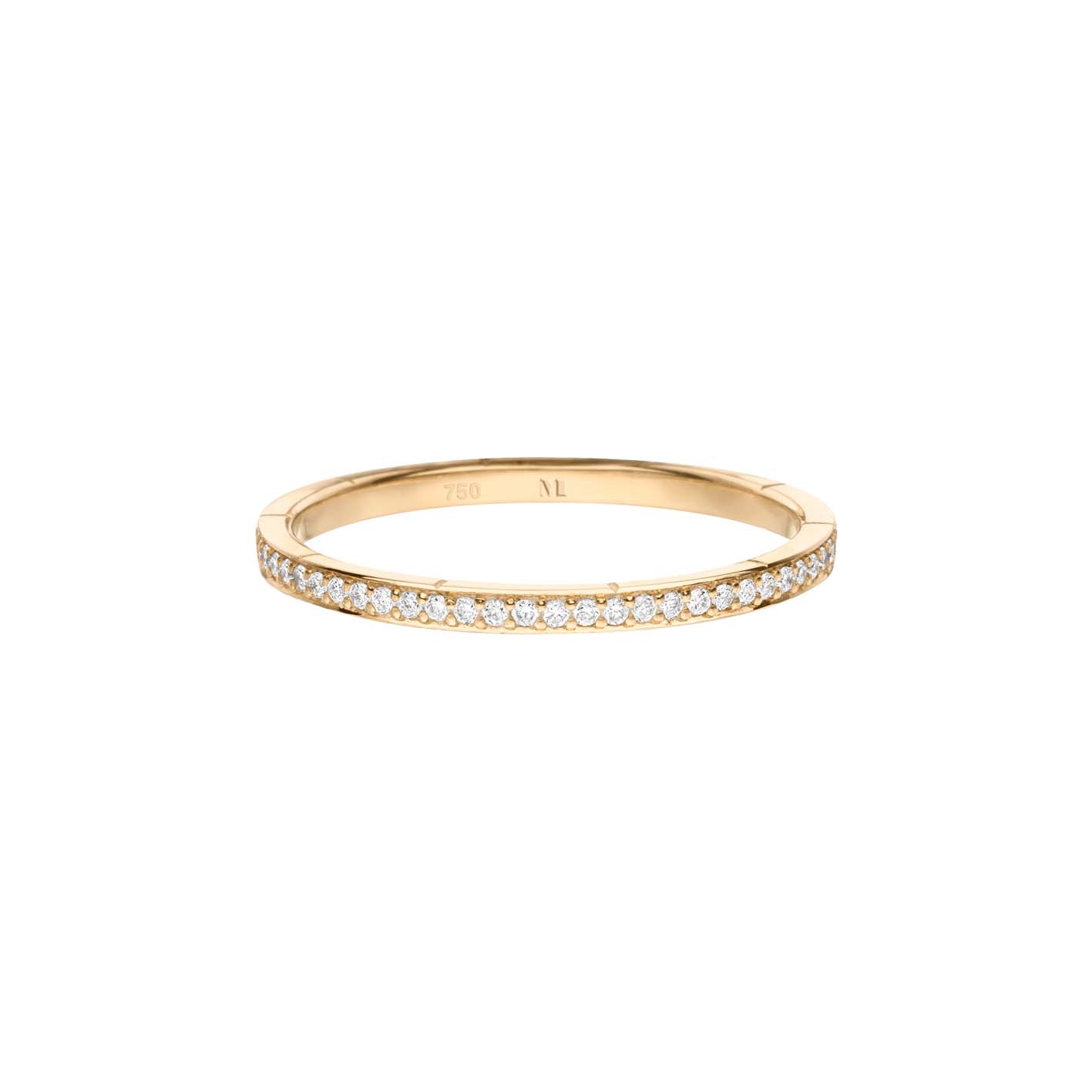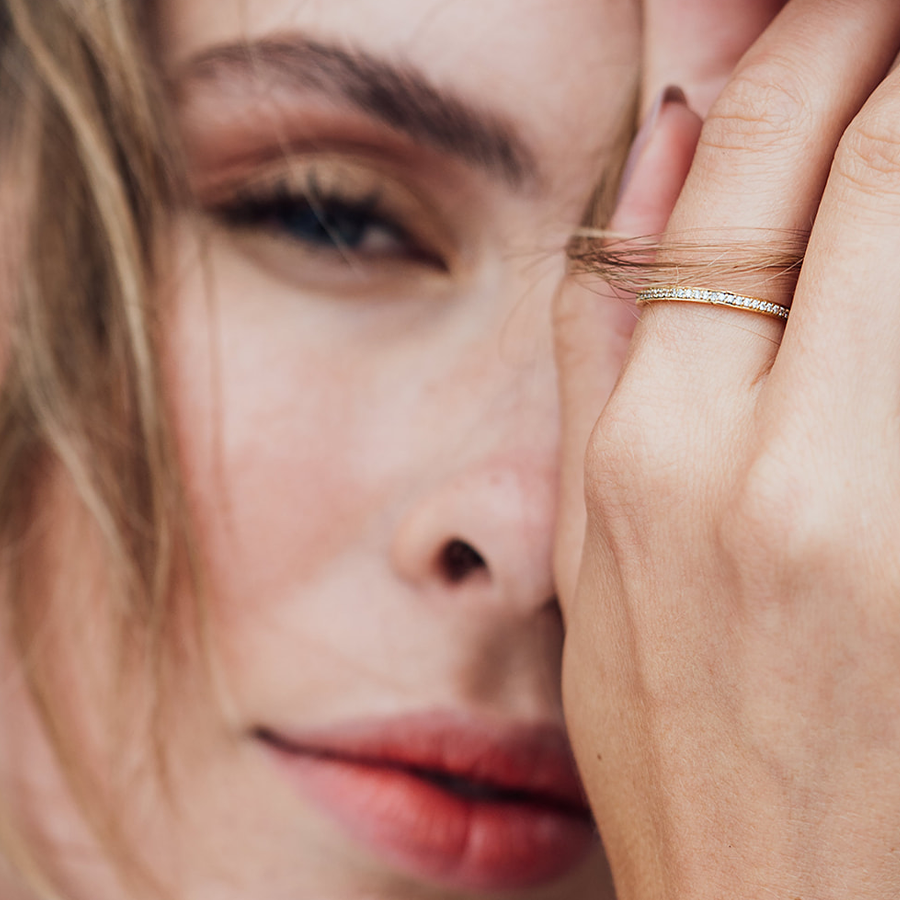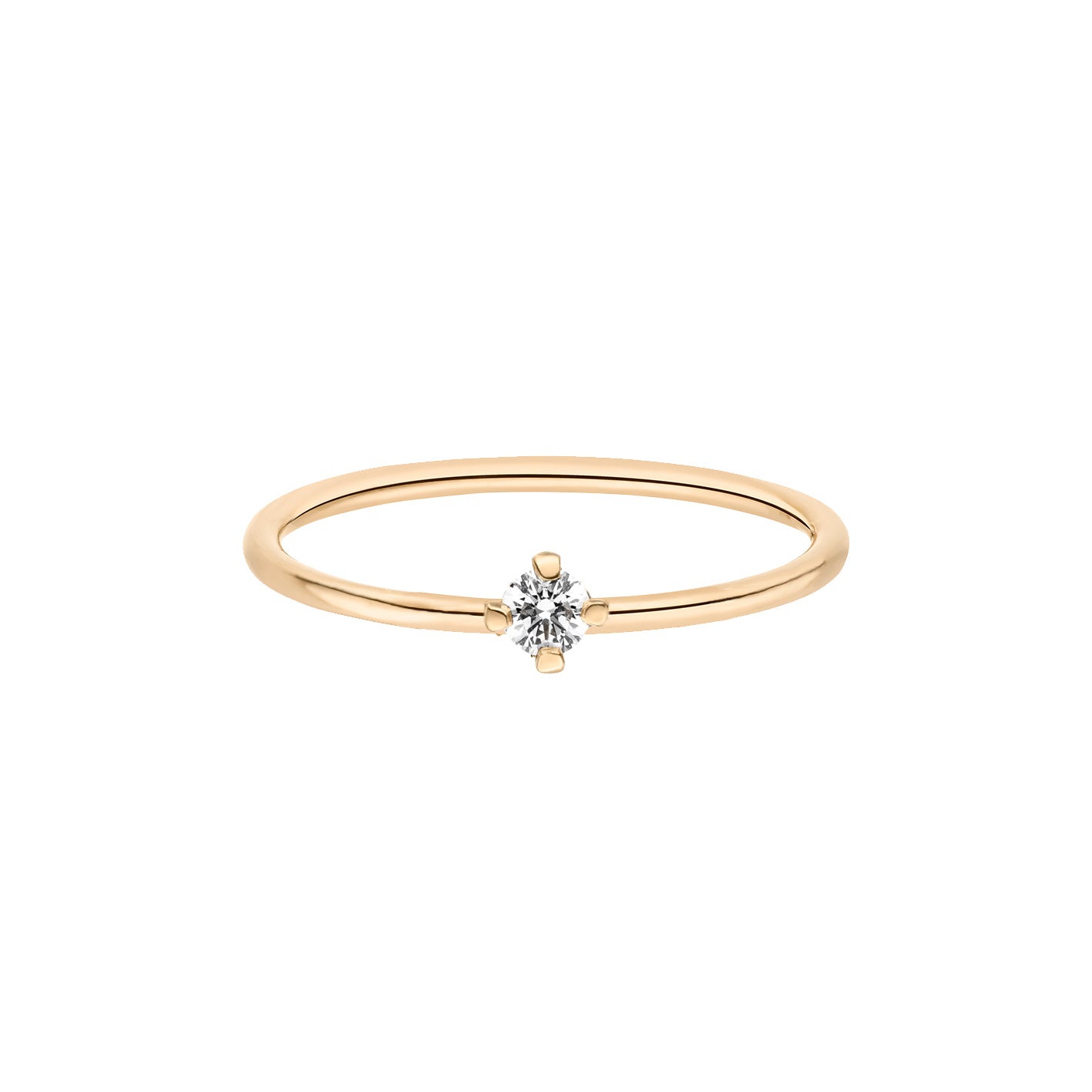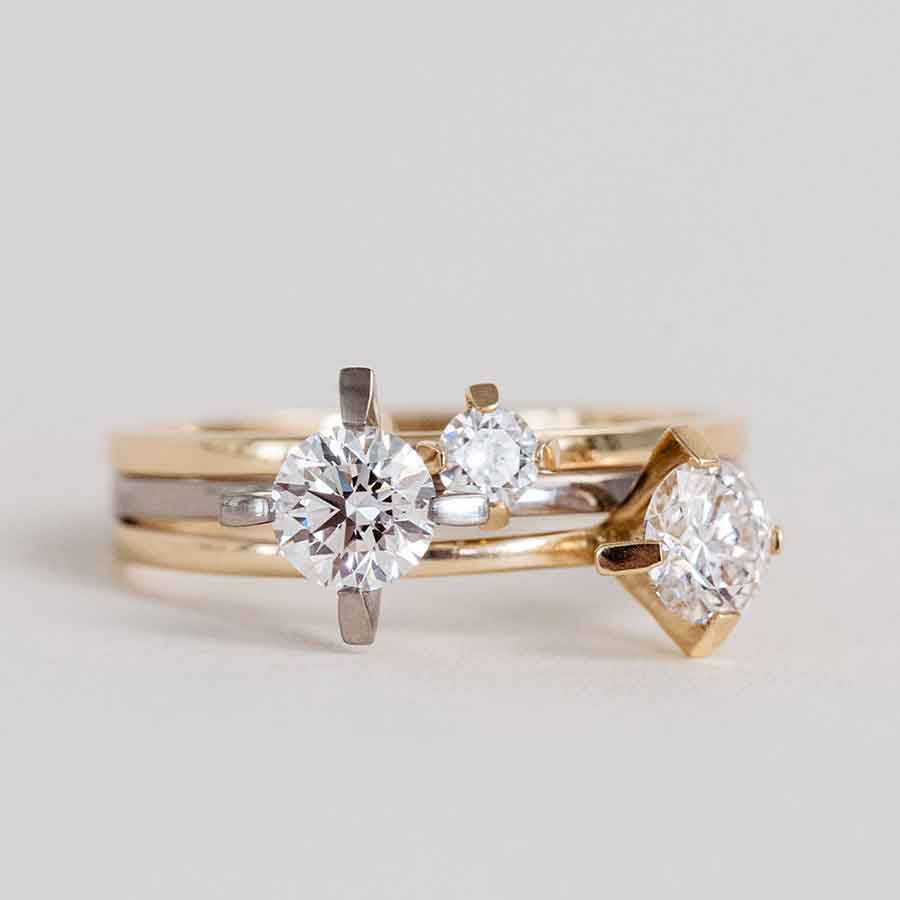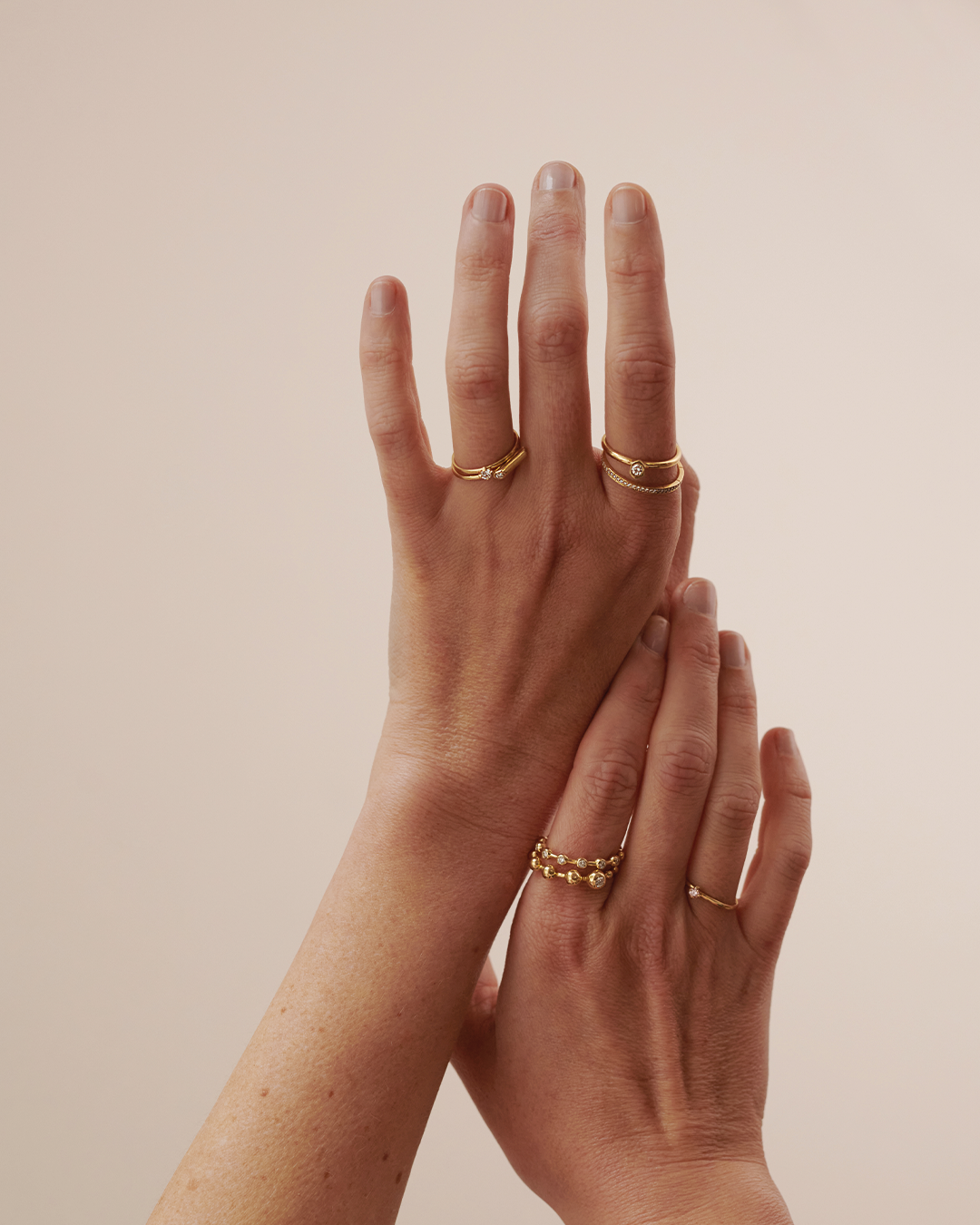For our jewelry, we exclusively use synthetic diamonds of the highest diamond quality. These are grown in the lab. How this works exactly, you can read in our article about Lab-grown diamonds read more. Even though our synthetic diamonds do not grow naturally, they are just as pure, beautiful, and unique as their natural counterparts. They are chemically and optically identical to the stones that grow deep within the Earth over millions of years. The only difference is: They are cultivated much faster and are not nearly as harmful to the environment. Read more about the improved environmental conditions in our current sustainability report and in our We mind Initiative.
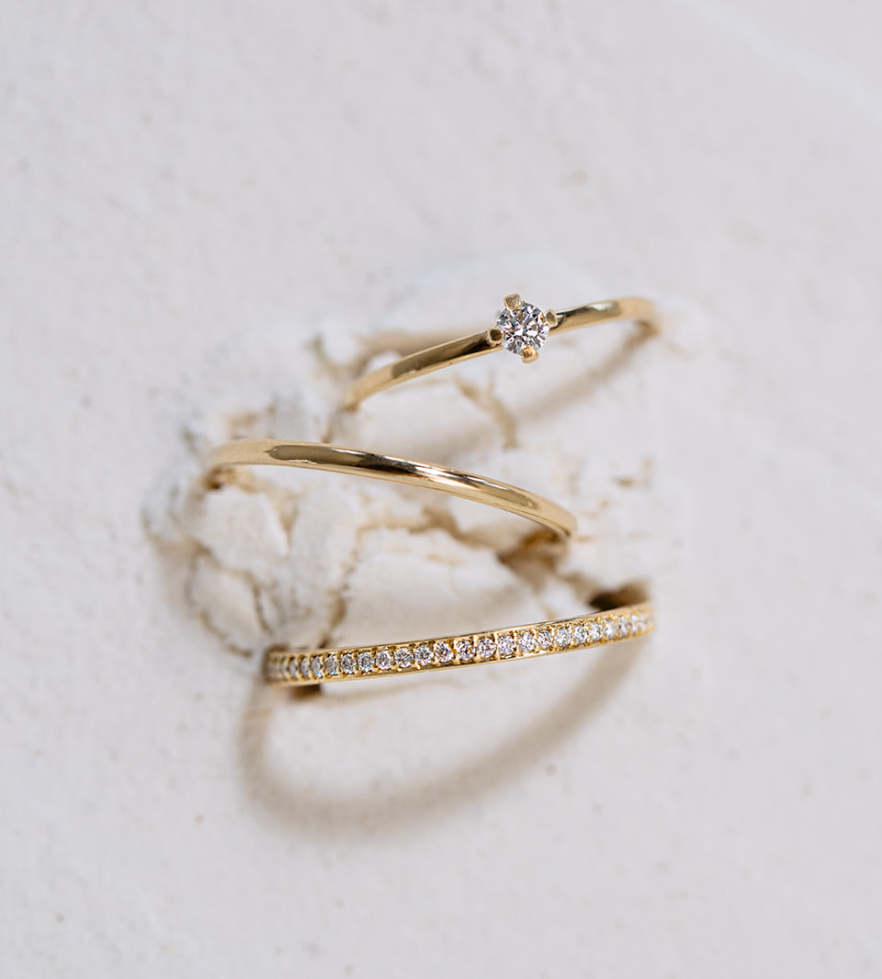
Diamond quality: 4 Cs
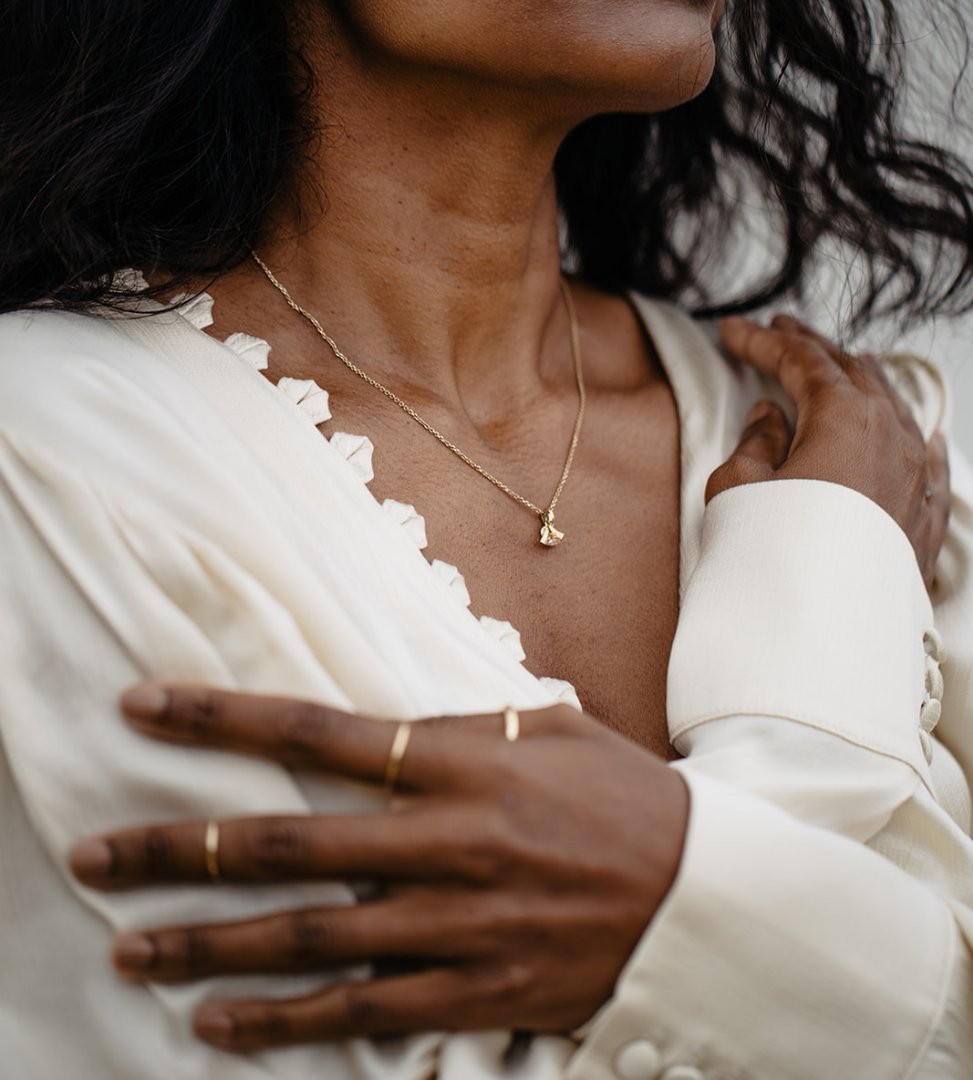
Finally, the diamond is a symbol of love
1. Carat - weight
Very few people know that a carat describes the weight of the diamond. A diamond carat is 0.20 grams. Depending on the cut of the diamond, a carat can vary in size, but the look can often be deceiving: If a stone has a large cut and is cut less deeply, it may appear more valuable than it actually is. The carat weight does not indicate the size of the stone..
2. Color - color
Color, i.e. the diamond color, shows what color a white diamond has, for example whether it is colorless or has a tint. The best diamond quality is colorless or a very fine white and therefore the most valuable. Color is one of the most important factors in determining quality and ranges from D = colorless to Z = clear tint. The white, synthetic diamonds from Maren Jewelery always have the color DG = colorless to almost colorless..
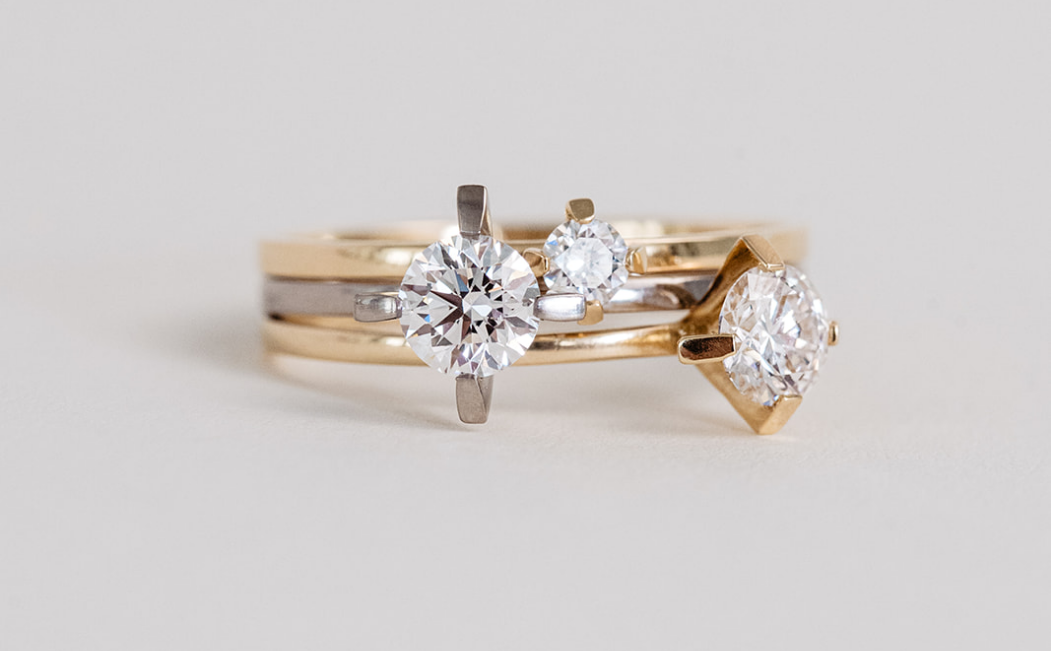
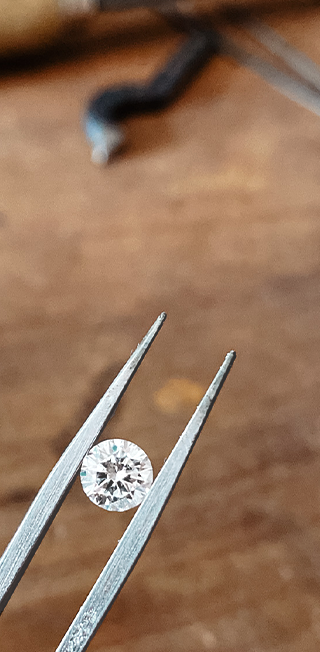
3. Cut – cut quality
The cut of the diamond is one of the most important criteria for determining the quality and value of a diamond. This is also the reason why the cut has become more and more important in recent years. However, the cut has nothing to do with the shape of the cut, whether a stone is cut round or square. Rather, it is the quality of the cut, how the facets of the cut stone interact and shine with the light. The better a stone is cut, the better the light can break and the stone can sparkle..
4. Clarity - Purity
The diamond clarity or clarity describes the degree of purity of a diamond. Diamonds are carbon compounds. Normally, these develop over millions of years under high pressure. Other minerals can also get lost in the stone, these are categorized into three levels: IF=flawless, VS=very small inclusions and SI=small inclusions. The visibility of the inclusions and thus the diamond quality is always evaluated under 10x magnification
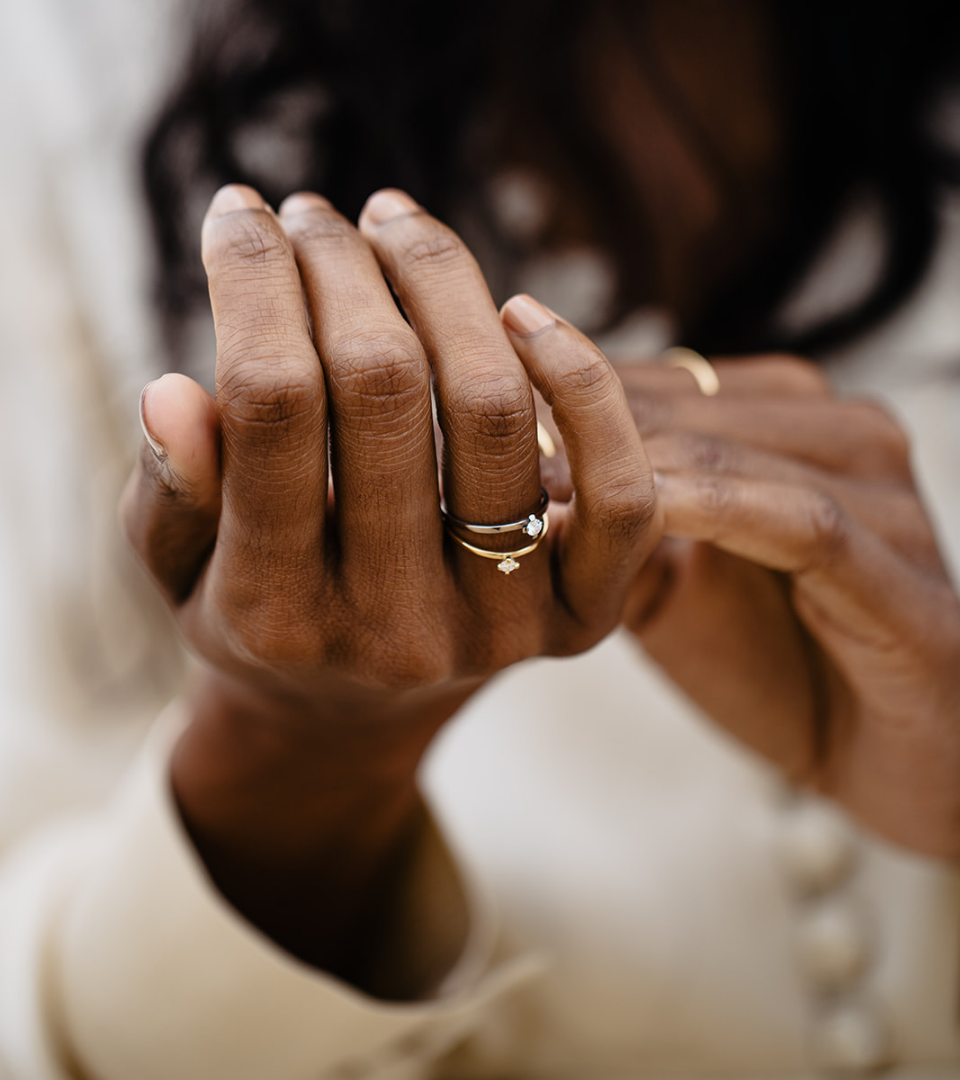
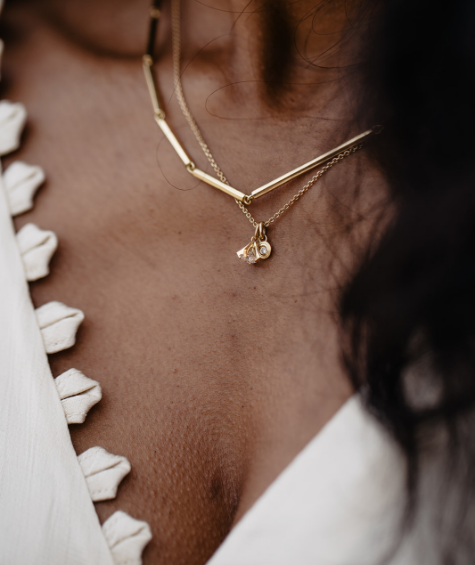
The perfect diamond
You shouldn't consider anything else when choosing a stone for your engagement ring. After all, the diamond is a symbol of your love and should be correspondingly beautiful. That’s why we always use the following diamond quality for our lab-grown diamonds: The color of our stones ranges from D-G, meaning colorless to almost colorless. The clarity is at vvs-vs, which means: Almost no inclusions, and the cut quality is "very good" to "Excellent". This overall very high quality of the lab diamonds used is, in our opinion, the most suitable combination for jewelry pieces. An even higher quality becomes more expensive, but is not recognizable to the naked eye as being better, meaning more sparkling, whiter, or flawless.
What diamond quality should an engagement ring have?
An engagement is a very emotional and personal moment of love, which the engagement ring symbolically captures for eternity. If an engagement ring with precious stones is to be chosen, in addition to the quality of the diamond, it is essential to evaluate whether the Engagement ring diamonds fairly traded, certified and traceable, or artificially bred in a lab. From a size of 0.5 carats, the diamond should come with an official quality certificate, as is the case with the synthetic diamonds at Maren Jewellery. In addition, the diamond quality should be evaluated using the 4 Cs in order to determine the quality of the stones and thus of the entire piece of jewellery.
From this blog post
Frequently Asked Questions
Is a VS1 clarity diamond high quality?
Yes, VS1 means: Almost no inclusions. The inclusions in the stone cannot be seen with the naked eye, so the stone has a beautiful clarity and good refraction and is therefore of high quality. The inclusions are only easily recognizable with a 10x magnifying glass.
Can one also classify the quality of synthetic diamonds using the 4 Cs?
Indeed synthetic diamonds can be of different diamond quality. Since their chemical composition and purity are identical to their natural counterparts, they can be classified in the same way as the 4 Cs.
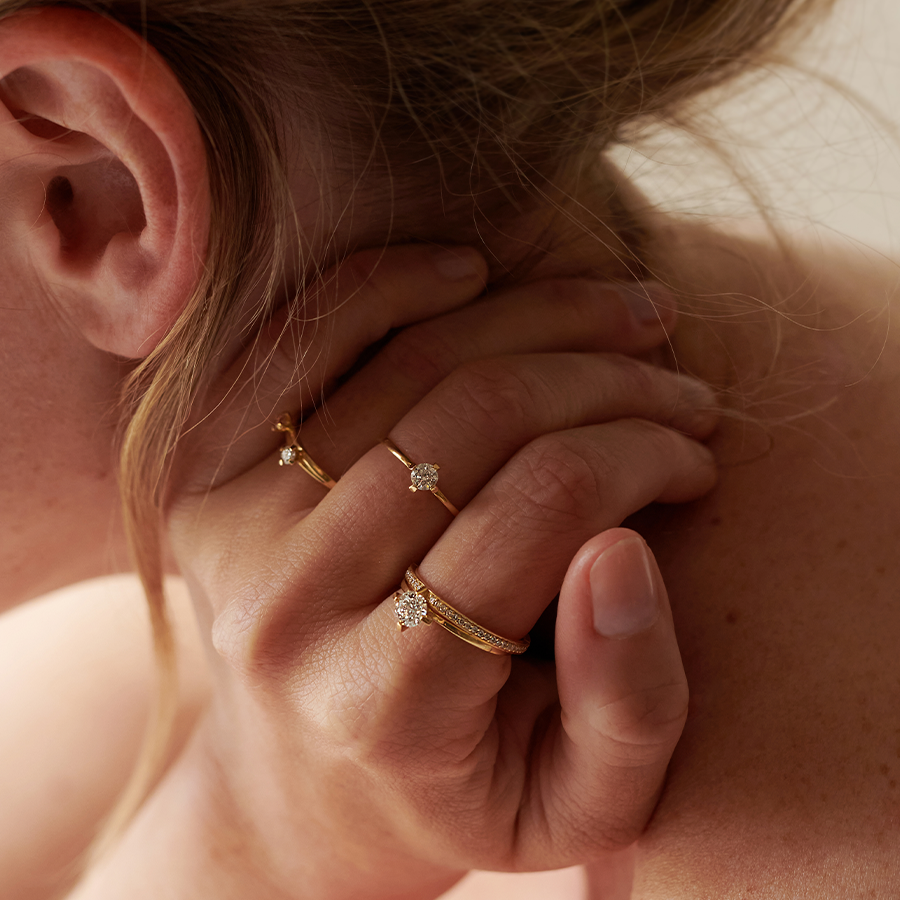
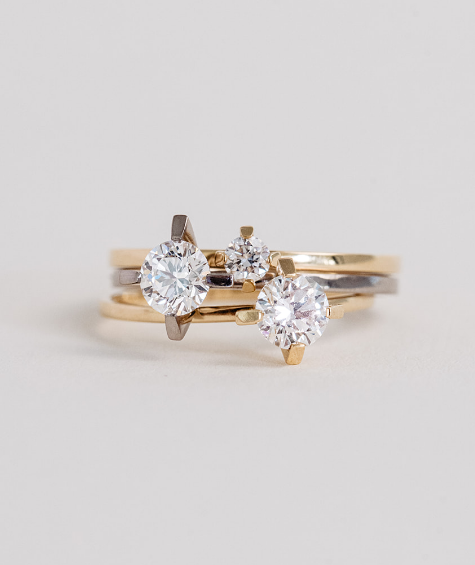

Written By Moritz Hackl
